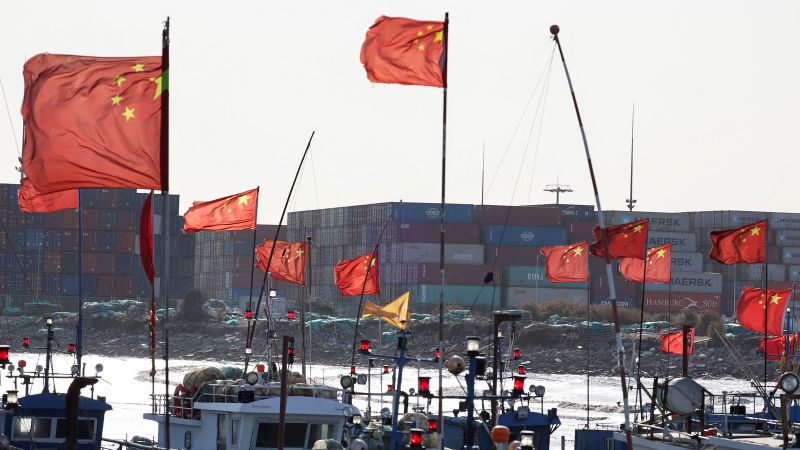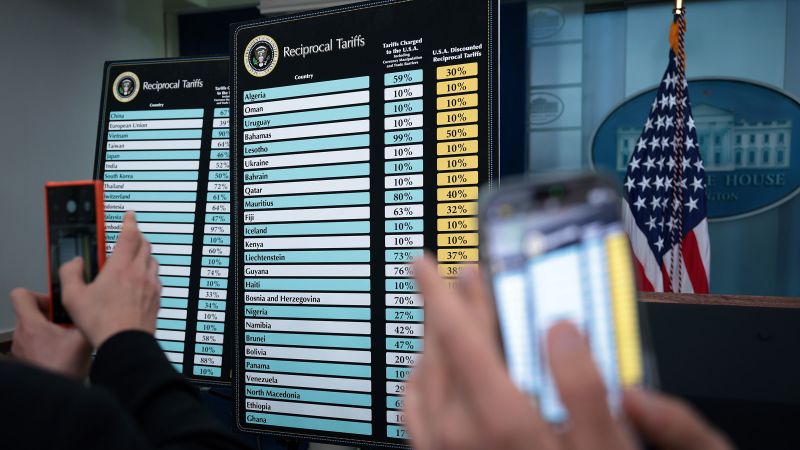Trump's Tariffs and Their Impact: Africa's Perspective

The global economic landscape is currently navigating a minefield of trade tensions, primarily ignited by tariff policies initiated by the United States. These policies, spearheaded initially by former President Donald Trump and continuing into 2025, are sending ripples across continents, compelling economic powerhouses and emerging markets alike to reassess their strategies. Central banks, like the European Central Bank (ECB), are under pressure to recalibrate monetary policies in response to these external pressures. Meanwhile, African nations are being urged to look inward and fortify intra-continental trade relations.
The ECB, led by Christine Lagarde, finds itself in a precarious position. After a series of interest rate cuts aimed at stimulating the eurozone economy, the bank appeared ready to pause its easing cycle. However, the imposition of sweeping tariffs by the U.S. has significantly increased the likelihood of further rate reductions. Economist Ulrike Kastens from DWS notes that the ECB is caught in a “new trade policy reality,” with potential U.S. tariffs and retaliatory measures from Europe posing substantial “downside risks” for the eurozone economy in 2025. Lagarde has affirmed the ECB’s readiness to deploy its available instruments to safeguard financial stability in the face of tariff-induced threats.
Having lowered its benchmark deposit rate from a peak of 4% to 2.5% in response to soaring consumer prices following the coronavirus pandemic and the Russia-Ukraine conflict, the ECB now faces a more complex scenario. While the eurozone's inflation rate has been trending towards the ECB's 2% target, the impact of tariffs on inflation remains a key concern. Some analysts, like Kastens, suggest that tariffs could be disinflationary, as reduced global activity leads to lower oil prices and a diversion of goods originally destined for the U.S. to Europe.
Andrew Kenningham from Capital Economics echoes this sentiment, emphasizing that Trump's tariff announcements, even with pauses, exert a “big impact on the world economy” by undermining confidence, trade, and investment. He anticipates that the ECB will cut interest rates by 25 basis points and potentially lower the deposit rate to as low as 1.75%. The initial prospect of a trade war was described by ING bank analyst Carsten Brzeski as “Europe's worst economic nightmare.”
The situation's fluidity necessitates a data-dependent, meeting-by-meeting approach for the ECB, according to Kastens. While further interest rate cuts remain a possibility, their scope may be limited by fiscal stimulus in Germany. French central bank chief Francois Villeroy de Galhau believes that the nearing “victory over inflation” could provide the confidence to lower interest rates, although this statement predates the latest tariff escalations.
In Africa, the U.S. tariff policies are prompting a reassessment of economic strategies. Dele Alake, Nigeria's Minister of Solid Minerals Development, suggests that these tariffs could be a “blessing in disguise” for African countries. Speaking at the AIM Congress in Abu Dhabi, Alake urged African nations to adopt an introspective approach by focusing on intra-African trade and reducing dependence on external forces. He emphasized the need to balance trade and strengthen economic ties within the continent, moving away from the historical practice of exporting raw materials without value addition.
Alake’s call for protecting Africa’s mineral wealth has resonated across the continent, particularly among mineral-producing countries. Nigeria’s policy is now geared towards value addition and boosting the local economy through job creation. He invited investors to establish factories in Africa to add value to mineral resources, rather than merely extracting and exporting them.
Former Egyptian Assistant Foreign Minister, Ambassador Dr. Mohamed Higazy, speaking in Cairo, stressed the importance of a unified African response to the U.S. tariffs. He called for Africa to “speak with one voice” and negotiate collectively with the United States to secure concessions for the entire continent. Higazy argued that Africa must move from reacting to global shocks to strategically shaping them, advocating for African-led solutions and deeper partnerships among African nations.
Higazy highlighted Egypt’s development strides as a model for a continental urban development strategy and emphasized that Africa possesses the institutions, capacity, and willpower to negotiate as equals. He cautioned that the United States risks losing its strategic advantage in Africa if it fails to engage respectfully and seriously.
The global trade landscape remains uncertain, with the U.S. employing tariffs as a tool to address perceived unfair trade practices. While the measures are creating challenges for Europe and Africa, they are also catalyzing introspection and a push for greater regional cooperation and self-reliance.












